What’s Happened So Far
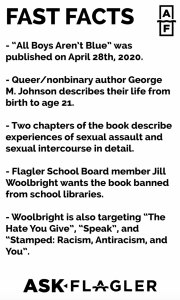 All Boys Aren’t Blue: A Memoir-Manifesto has become the center of attention and debate in Flagler County. The book is a memoir written by New York City’s George M. Johnson, a writer and activist who came out as queer and nonbinary last year. In it, Johnson details their formative life (Johnson prefers to be referred to by they/them pronouns) and how race and sexuality played a role in their adolescence and young adulthood.
All Boys Aren’t Blue: A Memoir-Manifesto has become the center of attention and debate in Flagler County. The book is a memoir written by New York City’s George M. Johnson, a writer and activist who came out as queer and nonbinary last year. In it, Johnson details their formative life (Johnson prefers to be referred to by they/them pronouns) and how race and sexuality played a role in their adolescence and young adulthood.
On November 3rd, Flagler School Board member Jill Woolbright raised objections with Superintendent Cathy Mittelstadt over All Boys Aren’t Blue being in school libraries, due to it containing explicit sexual descriptions. It was actually one of four books Woolbright asked to have removed, the three others in various ways also addressing race and sex. More on those books later in this article.
Six days later, a criminal report was filed by Woolbright with the Flagler County Sheriff’s Office against Superintendent Mittelstadt for having not notified other Board members of these developments, as she said Board Attorney Kristy Gavin had told her they would be. Furthermore, in her report Woolbright asserted that the mere availability of All Boys Aren’t Blue is a crime, and that whomever brought the copies of the book to Flagler’s school libraries should be held criminally accountable.
Flagler Palm Coast High School has two copies of All Boys Aren’t Blue. Matanzas High School and Buddy Taylor Middle School have one. No copies of the book are available to be checked out in any of Flagler’s elementary schools. In a recent interview with FlaglerLive editor Pierre Tristam, Johnson clarified that they’d intended the book for audiences 14 to 18 years old, or grades 10 through 12.
Proponents of the book’s inclusion in Flagler school libraries argue that its content is vital to teenagers going through their own crises of race, sexuality, and sex. Opponents criticize the explicit verbiage used by Johnson, saying it isn’t appropriate subject matter for the students it’s available to.
Last week, Assistant Superintendent Robert Bossardet pulled the copies of the book from FPCHS, MHS, and BTMS as a response to Woolbright’s decision to pursue criminal justice.
What Does the Book Say?
The chapter which most directly catalyzed the objections of Woolbright is titled, ‘Losing My Virginity Twice’. Once excerpt describes Johnson’s first experience having intercourse with a man while in college. It reads:
“There was so much excitement running through my body. This was much more than losing my virginity. For once, I was consenting to the sexual satisfaction of my body. This moment also confirmed that sex could look how I wanted it to look. And that it could be passionate and kind, but most importantly, fun and satisfying. His body felt great in my mouth.
“I came up after a while and kissed him again. We both got up and went into his bedroom, where we got completely naked. He took off his clothes and immediately lay on his stomach. I then took off my shirt, and then my boxer briefs. I got behind him. There was moonlight coming through the shades of the dark room. Two Black boys under the glow of blue moonlight. How poetic, dare I say ironic?
“Now, I was scared as hell. One, because I didn’t know what I was doing and clearly, he did. Two, because it was still college, and my fear of word getting out that I was inexperienced or bad in bed would have been too big of a campus rumor. Let alone that I was having sex with men and a friend of someone in my chapter.
“For the first few minutes, we dry humped and grinded. I was behind him, with my stomach on his back as we kissed. After a few minutes of fun and games, he got up and went to his nightstand, where he pulled out a condom and some lube. He then lay down on his stomach. I knew what I had to do even if I had never done it before. I had one point of reference, though, and that was seven-plus years of watching pornography. Although the porn was heterosexual, it was enough of a reference point for me to get the job done.
The book has become extremely popular with teen and young adult audiences in its first year of release. ⓒ Goodreads
“I remember the condom was blue and flavored like cotton candy. I put some lube on and got him up on his knees, and I began to slide into him from behind. I tried not to force it because I imagined that it would be painful; I didn’t want this moment to be painful. So I eased in, slowly, until I heard him moan.
“As we moved, I could tell he was excited—I was, too, but the pride in me told me not to show it. I felt like I was in control and proud of myself for getting it right on the first try—all the while still being nervous. I wanted to stay dominant in that moment. We went at it for about fifteen minutes before I started to get that feeling. Weakness in the legs, numbness in the waist. I finally came and let out a loud moan—to the point where he asked me to quiet down for the neighbors. I pulled out of him and kissed him while he masturbated. Then, he also came.
“That night was glorious. I had conquered a fear and had sex with a man on my own terms. The years of suppressing my identity and not dating or kissing had all come down to this one magical night in an apartment on the outskirts of Richmond, Virginia. I didn’t want to leave, and he didn’t make me. I did, however, get up to make a phone call to one of my line brothers. I left him a voicemail saying that I had finally had sex.”
What Johnson was attempting to describe is clear: an accurate account of their first time having sex with a man. Does it extend to ‘pornography’, as some opponents of the book have called it? That requires an examination of the definition of pornography.
The Merriam-Webster Dictionary lists two definitions of pornography as it pertains to sexual content. The first describes it as, “the depiction of erotic behavior (as in pictures or writing) intended to cause sexual excitement”. The second lists, “material (such as books or a photograph) that depicts erotic behavior and is intended to cause sexual excitement”.
In their interview with FlaglerLive, Johnson explained why they did not write this passage as pornography:
“Porn…is made…to be porn. A book that has sex in it or discusses sex doesn’t automatically become porn. If describing sex is porn, then so would any form of sex education, which typically shows pictures of genitalia. Even to explain abstinence, you have to explain what it isn’t. So the explanation of sex would still be considered porn under these terms. Sex is part of life. We hand a child a baby doll at age three, then refuse to explain to them how babies are made. If my book was erotica, the whole book would be that.
“My book has two chapters that discuss sexual experiences. Probably no more than 10 pages, total, of the 320 pages in the book. Furthermore, my chapters discuss consent, sexual abuse, and having agency to own your body and know what to do when you potentially experience trauma from sexual experiences. Porn is porn. Anything with a sex scene in it doesn’t become porn.”
Another passage describes an instance of sexual abuse inflicted upon Johnson by a now passed-away cousin when they (Johnson) were of middle school age, at the moderately older cousin’s behest. There’s no doubt: in their book, Johnson describes these sexual experiences in very matter-of-fact detail. Very little is held back in these descriptions; the memories are recounted in the fullness of how they occurred.
What Are the Other Books?
- Angie Thomas – The Hate U Give: a 2017 novel centered around the shooting of an unarmed black teenager by a white police officer. Also adapted into a film in 2018, The Hate U Give’s plot is parallel in some ways to the 2020 murder of George Floyd. The book was a New York Times bestseller.
- Laurie Halse Anderson – Speak: a 1999 novel stemming from the author’s own experiences as a victim of rape and the traumas that go with it. The main character grapples with social stigmatization, eventually rendering her unable to communicate except through art. Adapted into a 2004 movie, Speak is also a New York Times bestseller.
- Jason Reynolds & Ibrahim X. Kendi – Stamped: Racism, Antiracism and You: a nonfiction work which aims to trace the role of race and racism in American history, and equip younger readers to have conversations about these sorts of touchier subjects. This edition is a reworked version of the more adult book, Stamped from the Beginning. The original was written by Kendi alone, which was a New York Times bestseller in 2016.
What Does the Law Say?
Another point made by opponents of the book is that it violates Florida law, prohibiting the distribution of obscene material to minors. The law in question states the following:
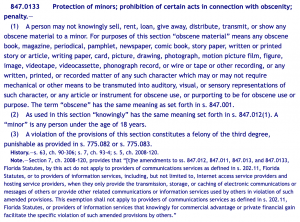
Section (2) of this statute alludes to another portion which defines ‘obscene’ as “Harmful materials; sale or distribution to minors or using minors in production prohibited; penalty.” Of course, ‘harmful materials’ isn’t a very specific, actionable guideline with which to deem what’s obscene and what’s not. Again we turn to the Merriam-Webster Dictionary, which lists a few applicable definitions of the word ‘obscene’:
- “Abhorrent to morality or virtue, specifically: designed to incite to lust or depravity”
- “Containing or being language regarded as taboo in polite usage”
- “Repulsive by reason of crass disregard of moral or ethical principles”
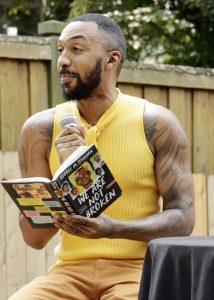
Johnson at a book signing event for their other book, We Are Not Broken, in Atlanta last month. ⓒ George M Johnson on Twitter
Of course, all three definitions still leave subjectivity as they apply to All Boys Aren’t Blue. Morality is different from person to person, and governing bodies are expressly prohibited from honoring one interpretation over another where reasonable subjectivity exists. At the same time, other flagrantly immoral actions are described in Johnson’s book, particularly some brutal bullying that took place in elementary school. No efforts have been made to prohibit the book on non-sexual grounds of immorality, and so the subjective moralities of Johnson’s sexual experiences don’t warrant book removal on those grounds alone.
As touched on before, ‘designed to incite lust or depravity’ contradicts Johnson’s own professed intent for the book’s content. One could choose to accuse them of misrepresenting their intentions, but short of testifying under oath (not likely), there’s nothing to warrant the removal in that caveat either.
‘Containing or being language regarded as taboo in polite usage’ may be the easiest case to make that All Boys Aren’t Blue fits the definition of obscene. Still, it’s not a cut and dry litmus that the book either does or doesn’t fit, beyond interpretation. And there’s nothing compelling governing bodies to abide by that exact definition in scrutinizing the book anyway.
Reactions So Far
A lot can be said about All Boys Aren’t Blue, but not that it hasn’t struck a chord. The Young Adult Library Services Association recently released its list of the top ten teen books for the year of 2020. All Boys Aren’t Blue placed #1, beating out an installment in the wildly popular The Hunger Games series by Suzanne Collins. Sony Pictures and Gabrielle Union are working to adapt the book into a TV series, according to a June 2020 announcement.
In an interview with Black News Channel last week, Johnson elaborated on how they saw people as incorrectly perceiving selections from their book:
“Realistically the two sections that people are coming for, is one section where I talk about sexual abuse that happened when I was around the age of 12 years old with an older cousin. But that chapter is actually discussing consent, and how children can recognize agency and recognize when they’re being violated and what to do when that happens.
“The second chapter they are referring to is the first time I had sex, and when I lost my virginity. But what they are leaving out is that I was 20 years old when that happened. And I describe it, descriptively what I was thinking about in that moment, but the part that I talk about where it refers to ‘pornography’ is the fact that because we don’t have sexual education in schools, porn was the only tool that I had and resource that I had to even know how to engage in sex. And so that chapter is really talking about how we need to give kids resources so that they know what they are engaging in prior to ending up in the situations that I ended up in.”
On November 14th, Woolbright’s School Board colleague Cheryl Massaro issued a public statement rebuking her decision to turn to the Sheriff’s Office. It read:
“As I approach the end of my first year as a School Board member for Flagler County Schools, I have come to realize that patience is by far the most important trait needed to successfully perform my duties. During the past year I’ve had to use a great deal of self-restraint in order to not react when faced with the multitude of politicized issues. It is important to note that these matters are being faced by school board member nationwide. However, today I can no longer remain silent and allow a rogue school board member to destroy the hard work of our current and prior board members, as that of all of the outstanding administrators, teachers and staff who have contributed to making Flagler Schools a top-notch, competitive school district.“First and foremost, Ms. Woolbright does not speak for the entire School Board. In fact, the only board member who is permitted to speak on behalf of the school board is our current Chair, Mr. Trevor Tucker. While I firmly believe that Ms. Woolbright is entitled to freely voice her opinion on district issues, I also believe she crossed the line when she filed criminal charges against the Flagler Schools’ Superintendent and Attorney with the Flagler County Sheriff’s Office for permitting books that she believes to be pornographic to be available to middle and high school students. By failing to allow for the investigative process to unfold, she bypassed established District policies and procedures.“Everyone knows the wheels of justice turn slowly, and that is for a purpose – to avoid mistakes and knee jerk reactions. I believe that by not permitting the district administrative team time to conduct a thorough investigation, Ms. Woolbright committed a grave mistake, and one that borders on a potential ethics violation. As I stated earlier, Ms. Woolbright is entitled to her opinion; however, she is not entitled to throw the other School Board members and District Administrators under the bus, based on her personal opinions. Effective school boards must operate as a team, compromise, and often must agree to disagree. Ms. Woolbright has demonstrated that she is not a team player, nor does she allow for the proper course of action to occur.“Ms. Woolbright is advocating for the removal of a number of books from the School District’s media centers based on her perception of their content. Let me make this abundantly clear – I do not support censorship of these highly acclaimed and award-winning teen books! The beauty of books lies within the eyes of the beholder. In 1982, the United States Supreme Court ruled, in the Island Trees School District v, Pico by Pico, 457 U.S. 853: The First Amendment imposes limitations upon a local school board’s exercise of its discretion to remove books from high school and junior high school libraries. Pp. 457 U.S. 863-872. Students do not shed their constitutional rights to freedom of speech or expression at the school house gates.“In closing, I believe no one said it better than Laurie Halse Anderson, the author of Speak, an award-winning teen book that deals with teenage rape, depression and domestic violence, and is one of the books on Ms. Woolbright’s proposed, banned book list. Ms. Anderson stated: “Censoring books with difficult, adolescent issues does not protect anybody. Quite the opposite. It leaves kids in the darkness and makes them vulnerable. Censorship is the child of fear and the father of ignorance. Our children cannot afford to have the truth of the world withheld from them.”
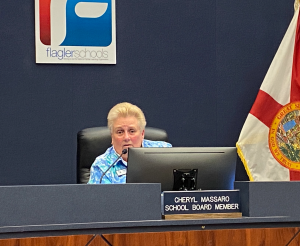
Board member Cheryl Massaro. ⓒ AskFlagler
Social media is alight with debate about the situation with the book. Images are circulating Facebook showing individual portions deemed to be in appropriate, often being met with accusations of perpetuating ‘cancel culture’ and advocating for book-banning. For opponents to Johnson’s book, it’s a simple question: would you want your kid reading this content?
Johnson appeared on MSNBC to speak about Woolbright’s efforts: “You have parents who are saying, ‘this book is obscene and this book shouldn’t be here and my child shouldn’t read it’, and at the same time thinking that their opinion of the book means that no child has the right to read this book at all.” They then called the pushes an assault on freedom of speech.
Woolbright herself has only issued one statement which seems to address the conflict head-on. On Monday, Woolbright reposted a quote on Facebook from Christian author Amanda Pittman, which reads: “Never worry about who will be offended if you speak the truth. Worry about who will be misled, deceived & destroyed if you don’t.”
Local activist Jack Petocz is organizing a ‘Protest Against Censorship’ Tuesday at the Government Services Building in Bunnell. The demonstration will take place concurrently with that day’s meeting, and will be attended by local LGBTQ+ allies and activists including 2022 Board candidate Courtney VandeBunte.
On his planned event, Petocz told AskFlagler: “I’m demonstrating to defend the right of all students to read diverse content and books they connect with. On behalf of high schoolers in the LGBT community, like myself, the books Jill Woolbright intends to ban could comfort those struggling with their identity. In addition, Speak, The Hate U Give and Stamped cover important topics such as anti-racism and sexual assault. These topics shouldn’t be censored, but recognized as real-world issues and receive the necessary exposure they deserve. Make no mistake, the attempted ban of these books in rooted in prejudice and bigotry. Through donations, I have acquired a mass of more than 200 books to distribute at the demonstration on Tuesday and the weeks following. I’ll keep fighting, I won’t let Jill win.”
The Board meeting will be held inside the Government Services Building in Bunnell, no doubt featuring impassioned advocates both for and against the book’s inclusion in school libraries. The meeting commences at 6:00pm. As they were when meetings debating mask mandates saw speakers threaten Board members, Flagler Sheriff’s deputies will be inside the Board chambers ensuring safe conduct at the meeting.
Chris Gollon is a Flagler County resident since 2004, as well as a staple of the local independent music scene and avid observer of Central Florida politics, arts, and recreation.




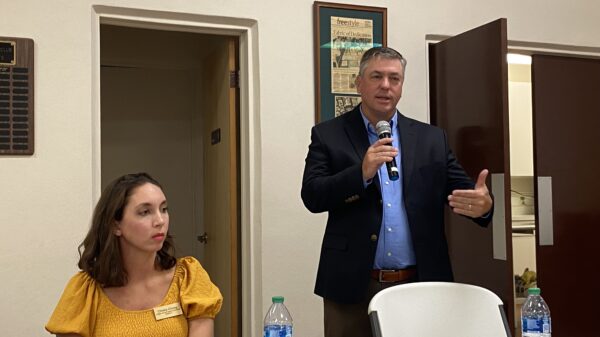
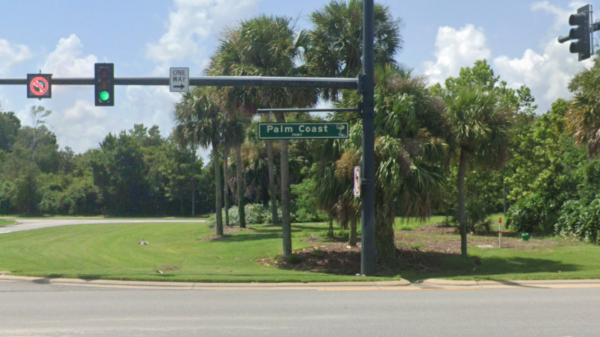



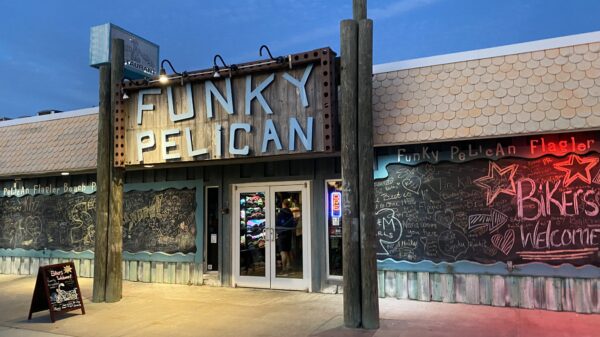


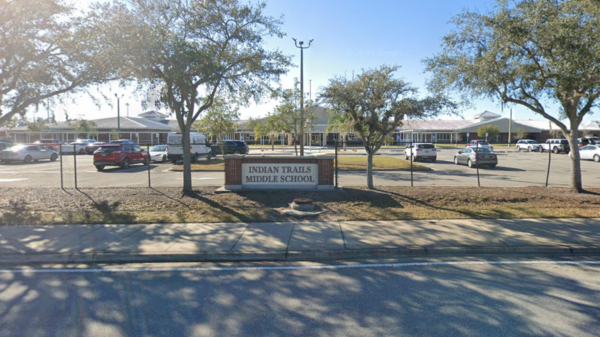

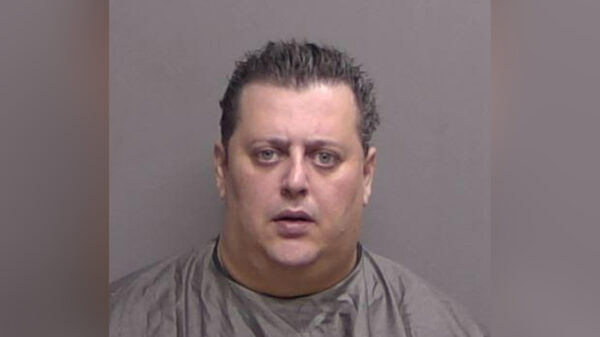

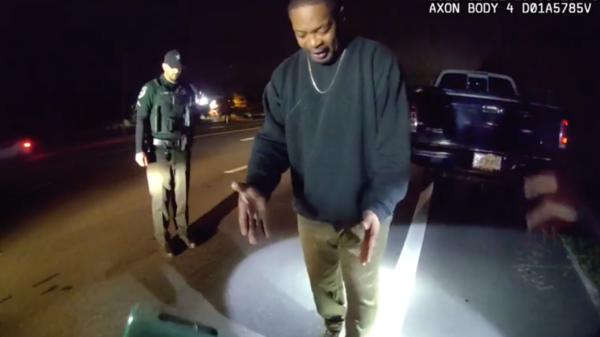
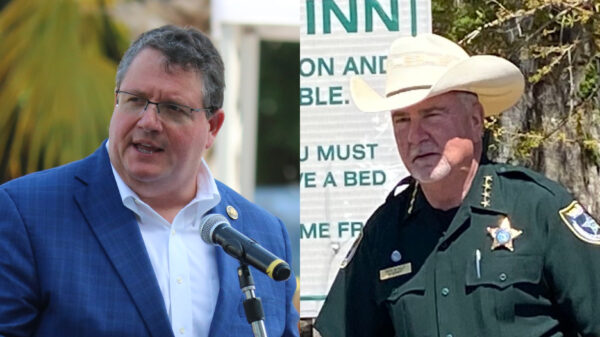

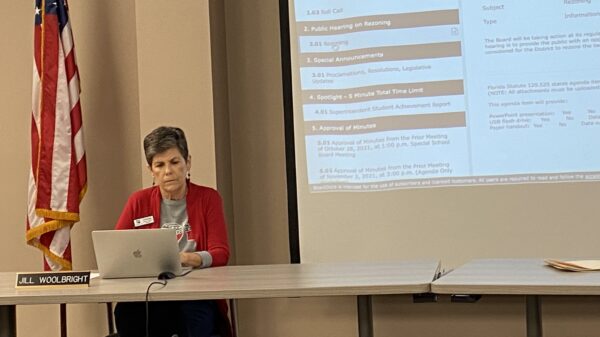

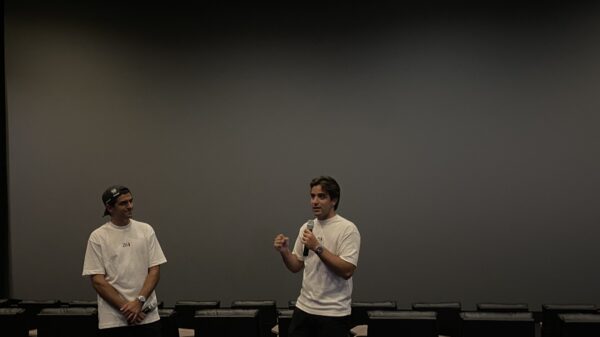
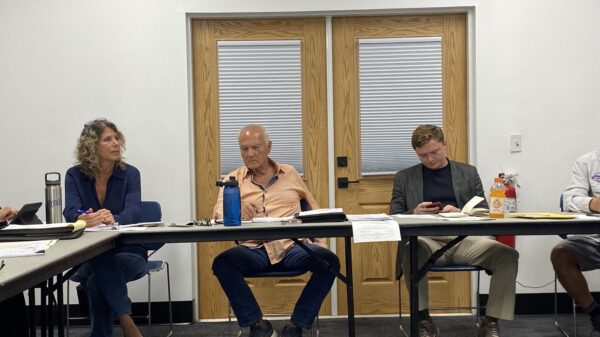
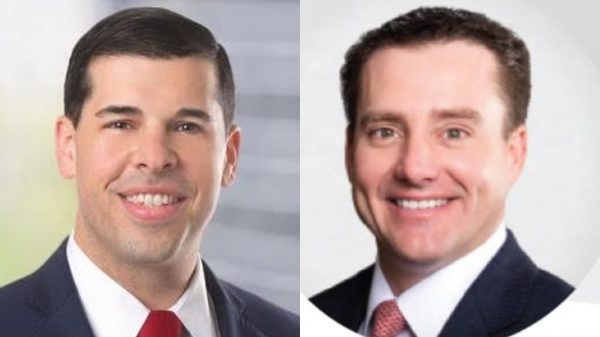





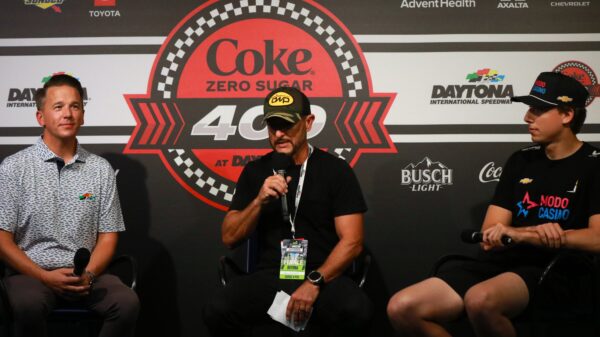



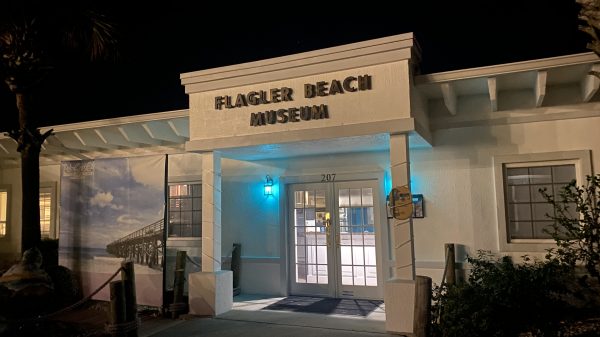
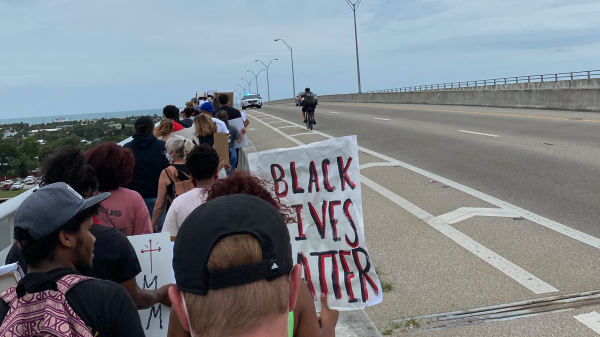
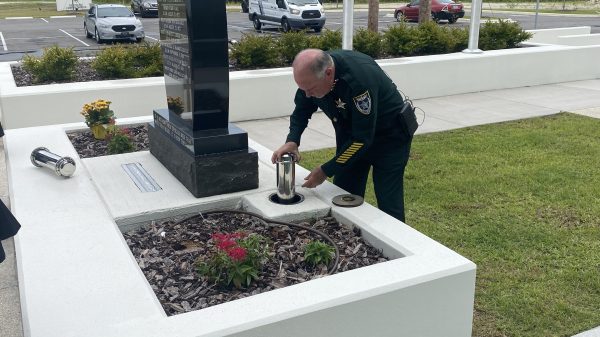
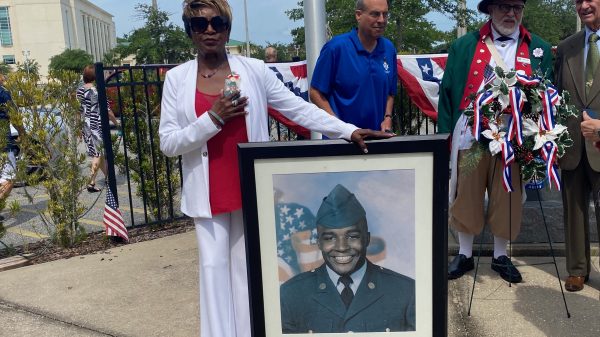
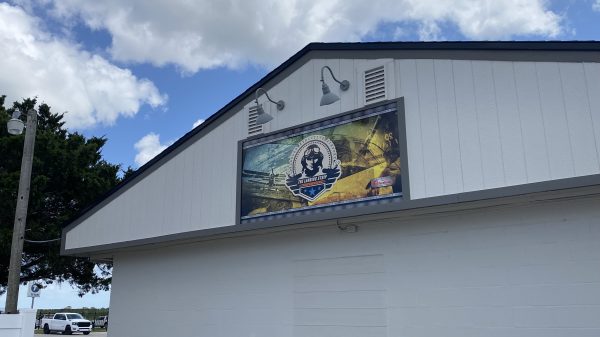

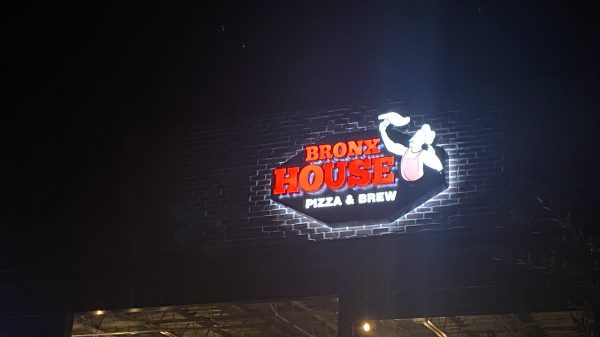
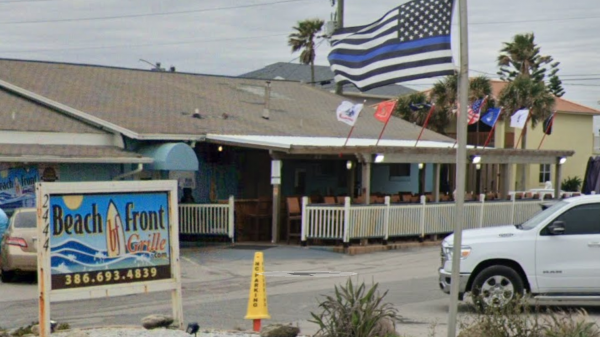
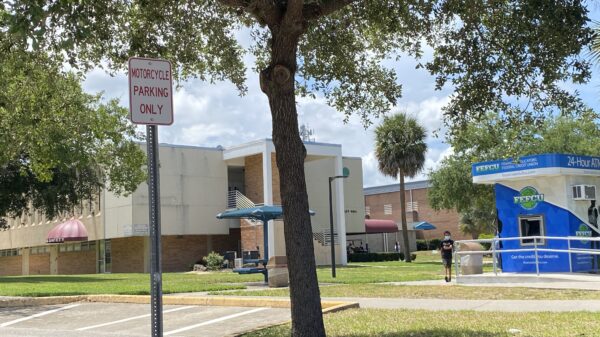
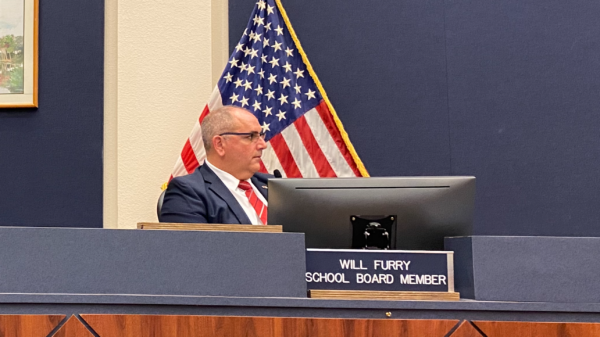



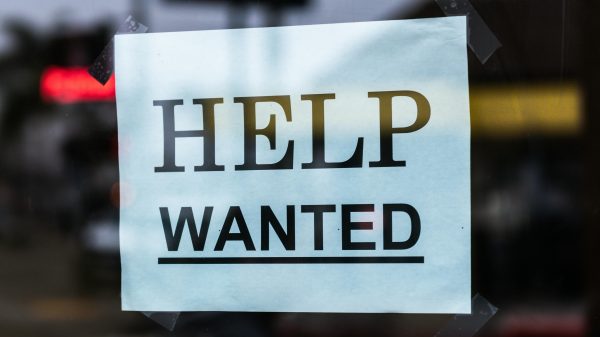
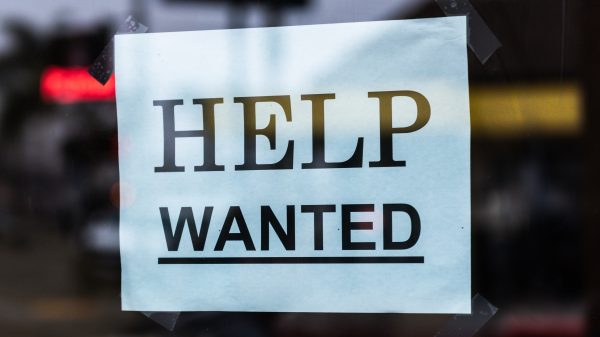
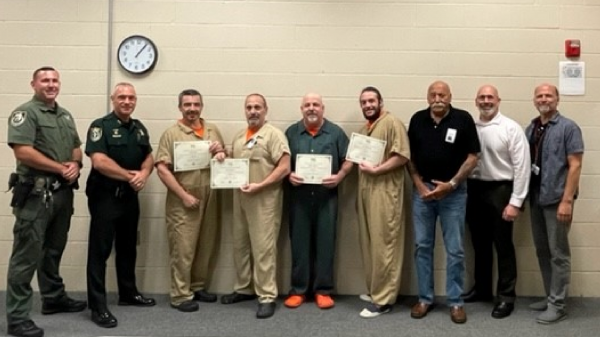
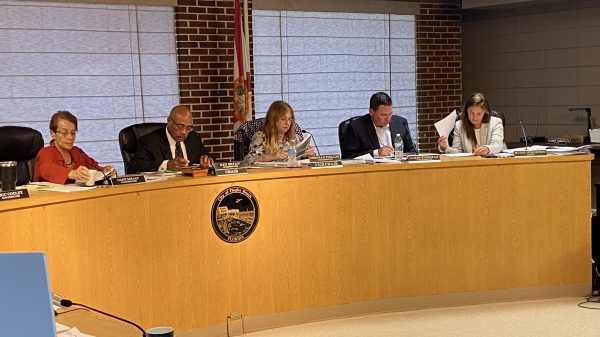
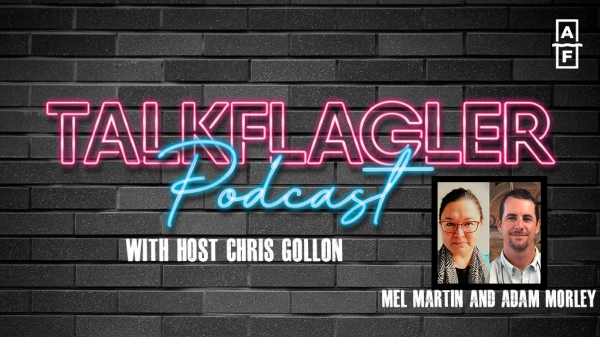
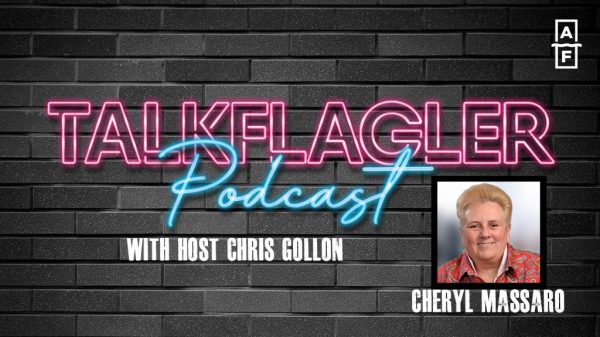
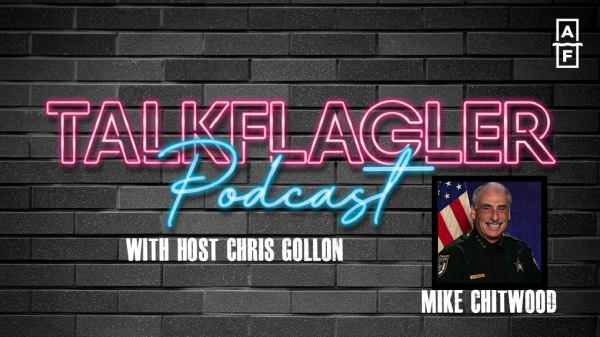
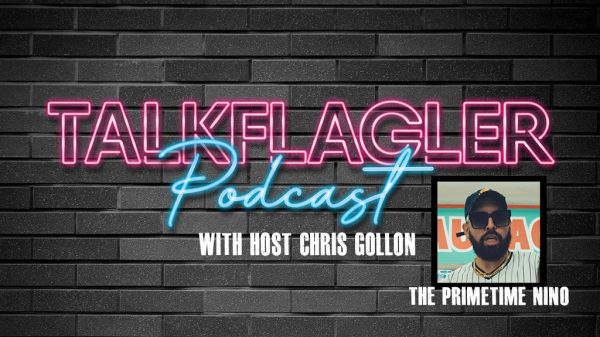

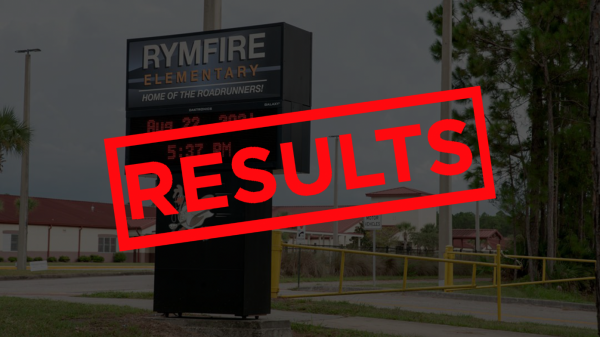
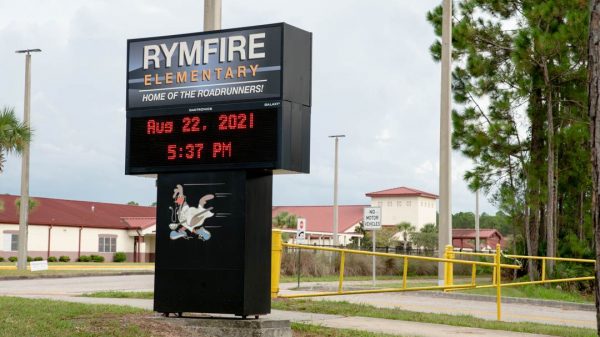

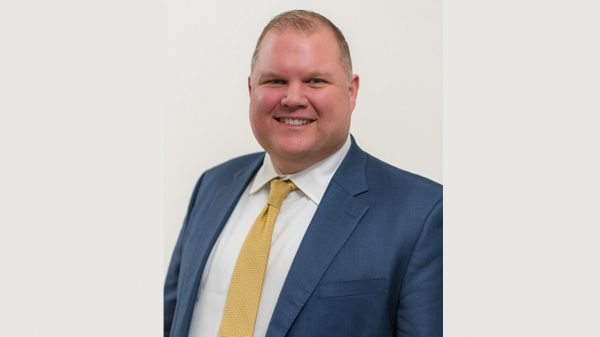

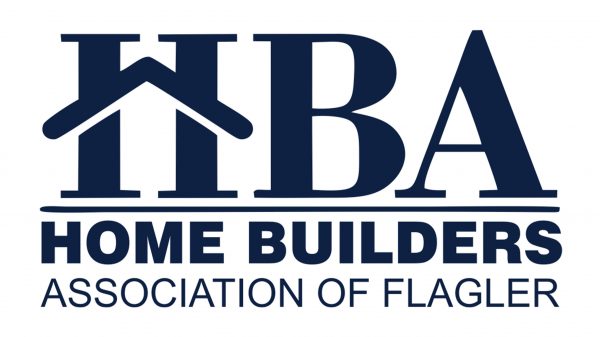
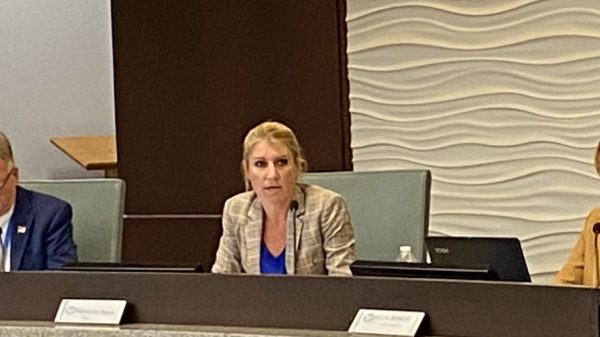




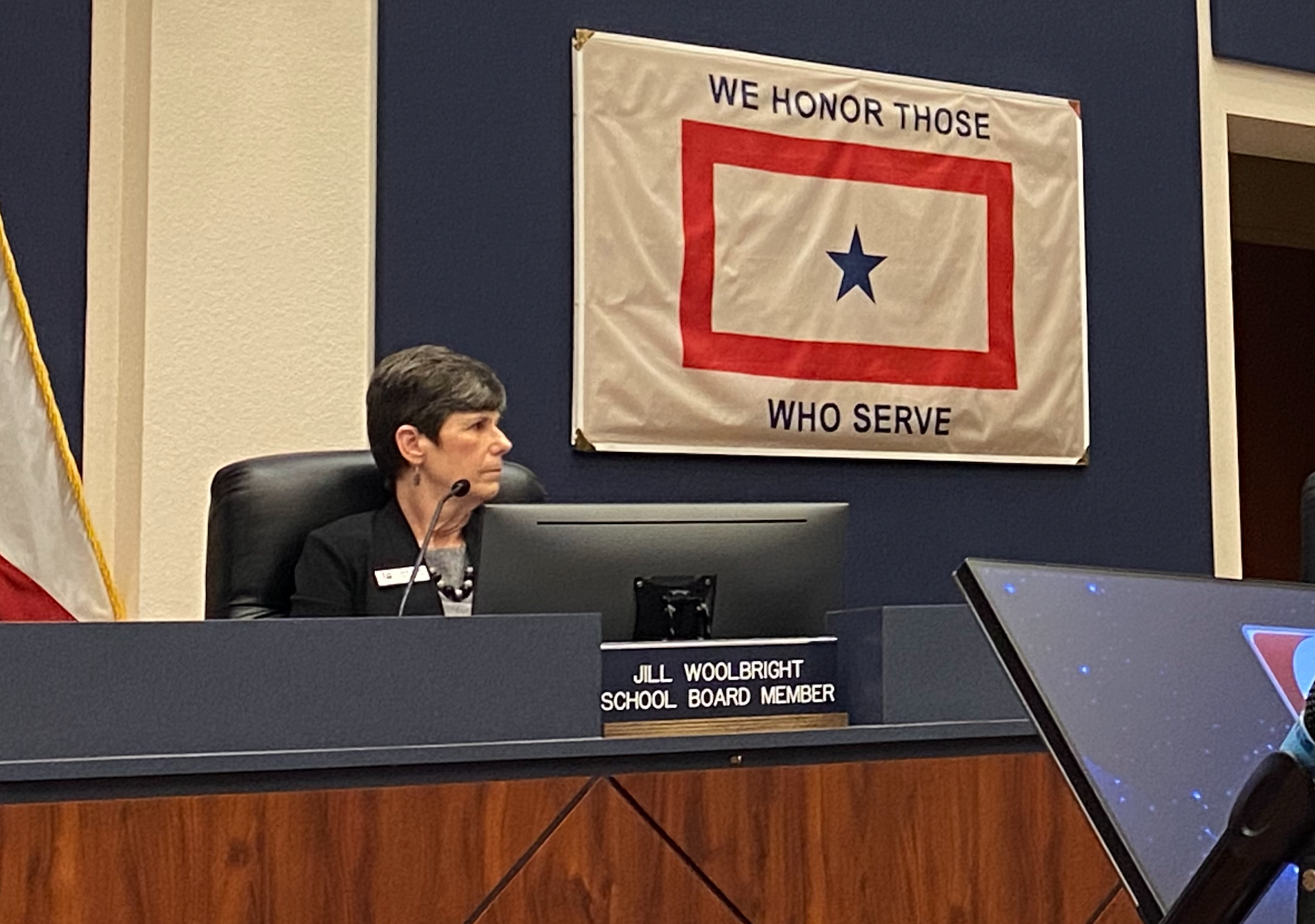
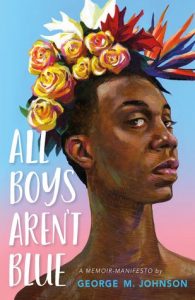


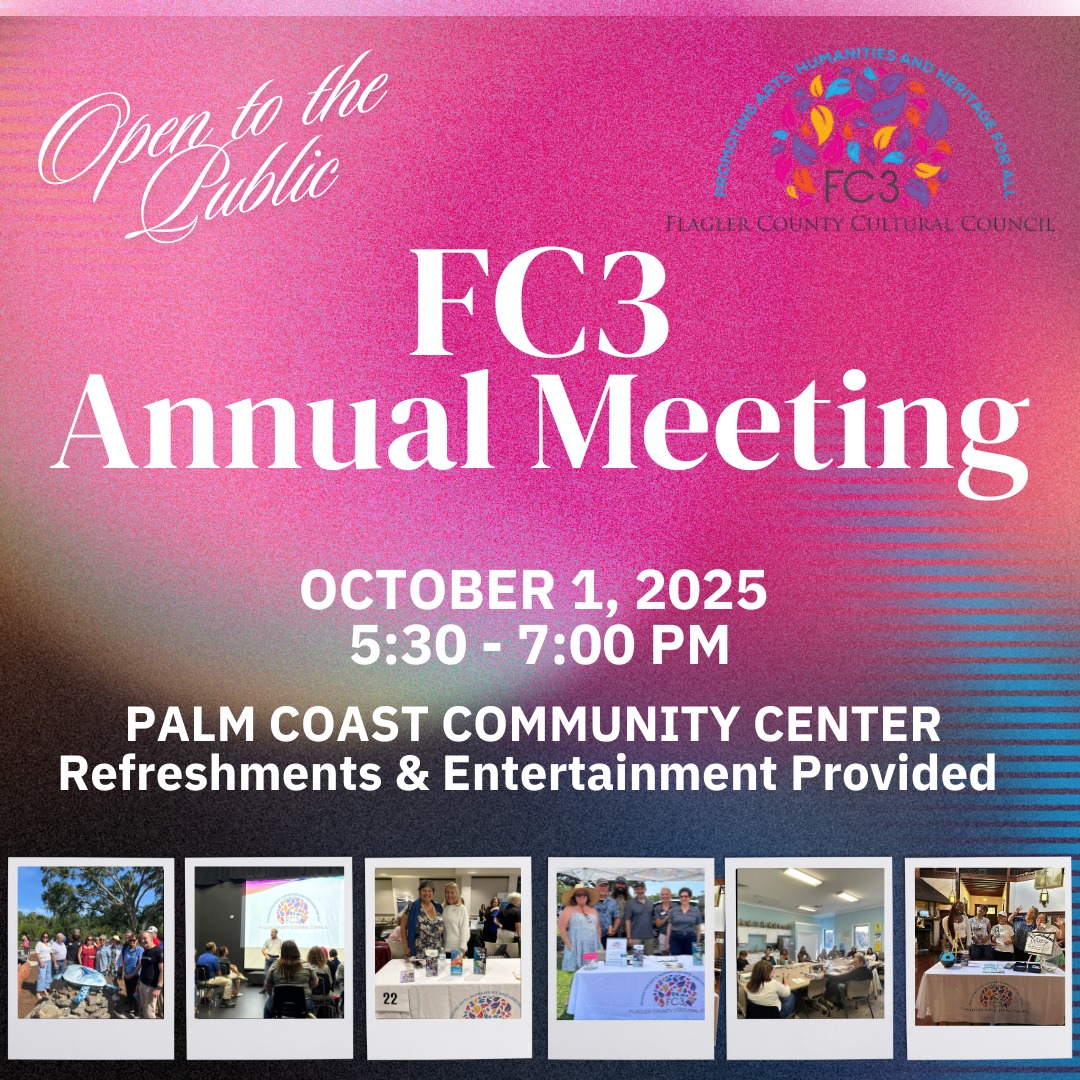
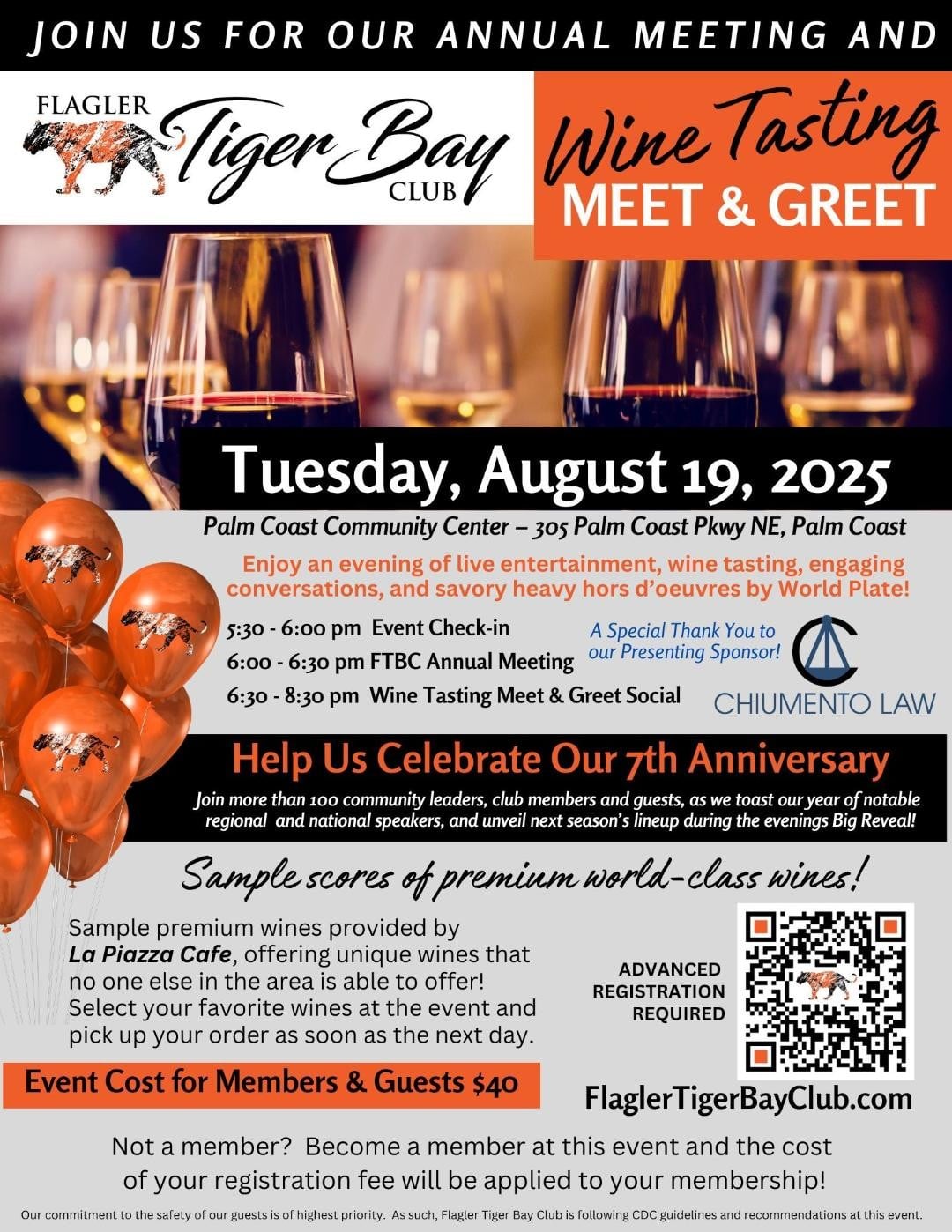






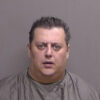

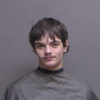
bob
November 18, 2021 at 6:05 am
“throw the bum out”
John Doe
May 18, 2022 at 1:42 pm
If this book were made into a movie it would not be considered porn but it would still have at least an R rating due to the graphic sex scene. Anyone under 17 would not be able to watch it without parents or legal guardians present.